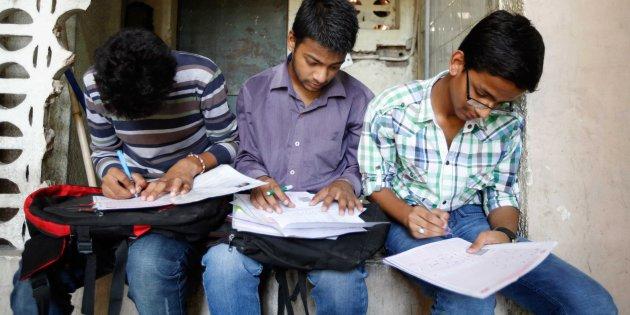For the sake of simplicity, let’s say that the public sector’s role in education can be identified as a three-fold one. Firstly, it is tasked with universalizing access to education. Its next responsibility would be to regulate the sector and finally, to ensure quality education for all.
In the context of the access provider role, estimates show that just in terms of physical infrastructure, more than a US $100 billion spends would be required in higher education alone, to double enrollment, from where it stands today (24%).
Where regulation is concerned, bodies such as the University Grants Commission (UGC) and other higher education regulators are in-charge but leave much to be desired in terms of quality checks and monitoring, accreditation, etc. In fact, the UGC merely acts as a grants disbursing body now for universities and colleges, rather than a regulator. This is despite the fact that about 16% of the Ministry’s budget (2016-17) was allocated to UGC.
Regarding quality, the government struggles to set standards and measure outcomes. Accreditation in the country is irregular and sub-optimal. In addition, unlike school education, where a certain level of learning outcomes may be gauged, this is difficult to do in higher education – especially assessing employability of a student post completing such education.
So is there a role the government should prioritise? Further, because the government is entrusted with these roles, does it necessarily mean that they are its exclusive mandate? Or should the government act as an enabler and allow external participation if it means better execution and a higher success rate?
The education and training industry is extremely large today and has strong further growth potential. With total educational spending of $2.7 trillion, the industry accounted for about 4.25% of the world’s GDP in 2010. In India alone, the spending on education and skilling has touched approximately Rs 74,000 crore. This may seem like a daunting figure but is still not sufficient. India spends about 4% of its GDP on all of education (about 1% on higher education), whereas globally the minimum recommended expenditure on education is 6% of GDP. Most of the public expenditure on higher education is used upon salaries and maintaining existing institutions, leaving very little to be spent on curriculum, research, and technology.
However, spending on education still has enormous scaling to do and this is where the private sector comes in. Private players will have opportunities from rising demand in segments not well covered by the public education system (like adult education and vocational training). They bring in additional capital and are able to make huge investments, especially when government spending is insufficient and results in substantial infrastructure and investment deficit. For instance, the government had set a target of achieving a 30% enrolment ratio in higher education by 2020. The enrolment ratio currently is 24%. Judging by historical trends, and the current pace of rising enrolments, this target seems difficult to achieve. We may need a better, plan to succeed.
Plus, the demand for higher education is only set to accelerate with growing population, higher enrolment as well as retention of students in schools. The private sector could play a crucial role in plugging these gaps and matching demand. In fact, it is already capturing the market in a big way, as can be seen in the adjacent graph. Enrolment in, and share of, private higher education institutions has surpassed that of government institutions (data as on 2013). Even the online education market in India expected to grow to US $40 billion by as soon as 2017.
Unlike the education sector, which is legally mandated to operate on a not-for-profit basis, for-profit skill training institutes can be set up. This, coupled with initiatives of the National Skill Development Corporation, has encouraged the private sector to set up vocational training institutes. Corporate interest has also increased in the skill development space because of the benefits that accrue to businesses themselves, in the form of adequately trained manpower as a ready pool for future hiring. Majority of institutions offering professional disciplines are now in the private sector.
There is a tendency of the public sector to view the private sector’s involvement in the education space with scepticism. But the private sector is necessary because of its ability to match industry demand for superior skilled manpower. It supplements infrastructure, facilities, technology and pedagogy and has an added advantage of escaping bureaucratic control and retaining autonomy to a large extent. Private players often collaborate with reputed international universities for faculty and other benefits which can be attractive to prospective students. They are also heavily investing in research-based education. As consumers of skilled manpower as well, the private sector is in a position to understand what type of skill training is to be imparted, and eventually benefit from it. This makes skill-training more efficient and effective.
All three education-related roles of the government are equally important. However, while regulation should remain outside the purview of the private sector, nothing should stop them from assisting the public sector in maximising enrolments and improving quality of education. Public needs to work with private and create a level-playing field, in order to uplift the overall quality of education.
Article Source: http://www.huffingtonpost.in/mayank-kumar/why-the-growth-of-higher-education-in-india-hinges-on-the-privat/






























![Top 25 Highest Paying Jobs in the World in 2024 [A Complete Guide]](/__khugblog-next/image/?url=https%3A%2F%2Fd14b9ctw0m6fid.cloudfront.net%2Fugblog%2Fwp-content%2Fuploads%2F2021%2F06%2F04134425%2F2112.png&w=3840&q=75)

![Top 25 Highest Paying Jobs in India [2024] – Latest & Trending](/__khugblog-next/image/?url=https%3A%2F%2Fd14b9ctw0m6fid.cloudfront.net%2Fugblog%2Fwp-content%2Fuploads%2F2020%2F05%2FTop-10-Highest-Paying-Jobs-in-India.png&w=3840&q=75)
![Top 19 Online Certificate Courses With High Salary in India [2024]](/__khugblog-next/image/?url=https%3A%2F%2Fd14b9ctw0m6fid.cloudfront.net%2Fugblog%2Fwp-content%2Fuploads%2F2021%2F01%2F1390.png&w=3840&q=75)